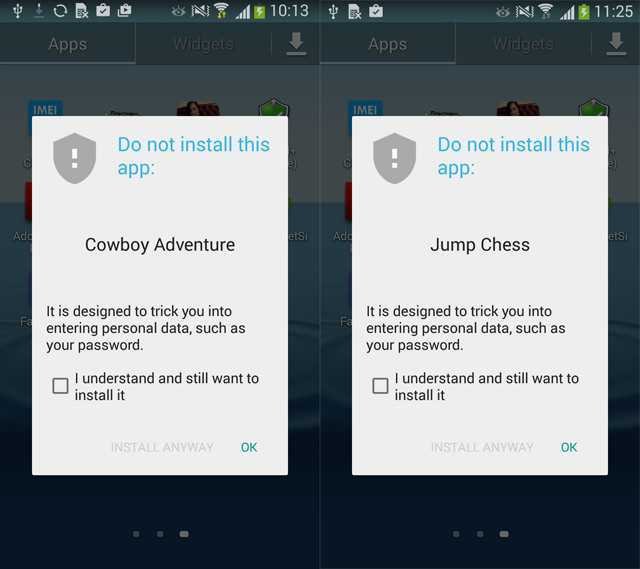Thousands of Android users accepted attack by phishing apps aimed at stealing Facebook credentials.
Η ESET recently analyzed two malware samples on Google Play which appeared as games called “Cowboy Adventure1"And" Jump Chess ". Applications contain a trojan that allows them to perform phishing attacks. Google has both apps withdrawn and displays a notification before installing them on Android devices. More details are available in an analytical article at WeLiveSecurity.com.
A few months ago, Google had also announced that improves its security mechanisms on the Google Play Store to reduce the risk of malicious software being infected by users.
Unlike her case Minecraft Faster Application recently analyzed by ESET, "Cowboy Adventure" and "Jump Chess" are really games that contain malicious data. After installing the app on an Android device, a fake login window was displayed Facebook and sent the Facebook user access details directly to the server that was attacked.
"Although the number of potential victims may have reached one million, fortunately many were able to avoid cheating, as users' negative feedback prevented them from completing their Facebook access details - username and password access » said Robert Lipovsky, Senior Malware Researcher at ESET.
As a rule, we should not underestimate the importance of scanning malware on Android devices. The ESET Mobile Security detects the above two malicious games as Android / Spy.Feabme.A.
1 There is another Google Play app named "Cowboy Adventure," created by AiTianTian Studio. So far, this application is not a threat to user security.





